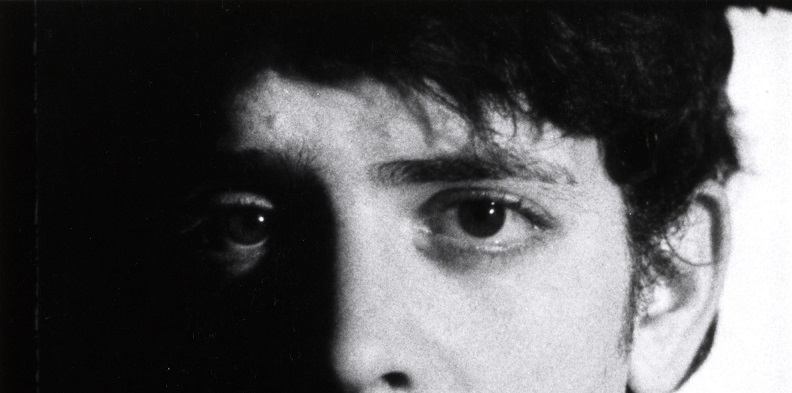Jacob Dunlop ¦ Contributing Writer
My first memories of Lou Reed are from some grainy day in my childhood. I can remember hearing the words “Hey Babe, Take a Walk on the Wild Side” casually sung over one of the most memorable and laid back pieces of music I had ever heard. Looking at that yellow banana on the cover of the CD sitting high on our shelves with interest I don’t think I was really aware of the significance of either, but I was intrigued.
Only after years of listening and a growing obsession with Rock music have I come to understand the significance of what I heard. Perhaps this is the sign of a truly influential artist though; their work seems to have always just been there.
In the wake of Lou Reed’s death there was an explosion of praise and reference to the aforementioned song in particular (“RIP Lou – take a walk on the Wild Side” etc., ad nauseam).
Though credited and cited as a musician of heroic status throughout his life, it now would seem his death has somewhat canonised him as part of the great narrative of the Music of the 20th Century; both with the Underground and in his solo efforts. But does this characterisation actually undermine the significance and scale of his importance to a wide range of music – the alternative scene in particular? By overstating the importance of his most popular work is his real contribution belittled?
This dilemma seems to apply to many of the greatest of the deceased musicians of Popular Music; John Lennon or Kurt Cobain are typical examples. Both extraordinarily popular in their careers, both with droves of fans proving their worth through their knowledge of the ‘darker and more mature stuff’.
The pièce de rèsistance of Cobain however is arguably Nirvana’s second effort Nevermind which combined a heavy punk rock sound with carefully constructed melodies and harmonies from Dave Grohl which wouldn’t be out of place in the kind of 60s pop that Cobain mentioned had influenced his songwriting. Crucially it dragged Cobain from sleeping in his car to International Rock Star status.
John Lennon’s meteoric rise to fame with the Beatles came from their deceptively simple Pop melodies which they embellished with an arguably unparalleled harmonic craftsmanship. Over the course of their career they became more creative and experimental and created some truly unique records from the psychedelic opera that is Sgt. Peppers Lonely Hearts Club Band to the meticulously crafted Abbey Road Medley that winds its way round an epic Beatle-crescendo culminating in the understated Her Majesty.
To some it seems to be blasphemy to put the words popular and music together when talking about people like Lennon, Cobain and Reed and yet there are references in pop culture to the influence of Lou Reed all over the place.
In my experiences with fellow music obsessives and regular listeners nowadays, you’d be hard-pressed to find someone who thinks I Wanna Hold Your Hand (Lennon/McCartney) is cooler than Come Together. But isn’t there a reason that everyone knows all the words and melodic intervals of the former and I’m yet to meet anyone who can recite the verses of the latter in the correct form and order? What young guitarist first learned to play Endless Nameless on the tiny practice amp in their bedroom? To some it seems to be blasphemy to put the words popular and music together when talking about people like Lennon, Cobain and Reed and yet there are references in pop culture to the influence of Lou Reed all over the place.
The iconic relationship with the poster boy of Pop Art Andy Warhol is only the beginning. Reed holds a mythical persona as the embodiment of cool in American teen-comedy/drama Adventureland (2009). The Arctic Monkeys have cited Reed and The Velvet Underground as a huge influence on their recently released 5th album AM (there is in fact a Velvet Underground release entitled VU from 1985). Mad Sounds from AM sounds like a distant cousin of Reed’s Pale Blue Eyes and after Reed’s death they played a cover of Wild Side at their show in Liverpool.
The other side of Reed’s influence can perhaps be summed up by the fact that The Sex Pistols bass player is nick-named after his track Vicious. His explorations with the avant-garde, be it through lyrical surrealism or actual white noise earned the respect of punks and post punks alike.
Retrospectively Reed seems to embody the late 60s in a time when counterculture became Pop culture. Reed’s lyrics eloquently painted characters from the now infamous underworld of New York City in the 1960s and he’s a symbol of that transcendence of the traditional hierarchies of Art.
To me this is Lou Reed’s real legacy. He turned the unique into the popular, he made what was weird cool.
What track better sums up Late 60’s Popular Music’s journey down this blurred line between mainstream and underground cultures than Walk on the Wild Side. The song’s title itself says it all – take a stroll through the surreal world of New York City’s underground where you’ll find elements of transgender, drugs and sexual expression intertwining into something truly special with the artistic credentials to boot. There’s nothing insignificant about this.
To me this is Lou Reed’s real legacy. He turned the unique into the popular, he made what was weird cool. Instead of having to justify your fandom with the most obscure and unknown songs he wrote, be proud of your tingling spine listening to the guitar solo on Pale Blue Eyes.
In 1968 Andy Warhol said “In the future everyone will be world famous for 15 minutes”. Perhaps he’s right – but if Lou Reed’s life and work proves anything it’s that some people will be immortalised far beyond a quarter of an hour. Give me Walk On The Wild Side over Metal Machine Music any (perfect) day of the week.







